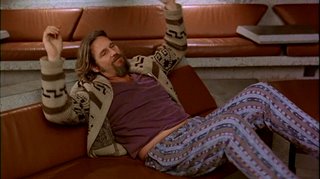(x-posted to the
RHGTRH)
By 1986 the Go-Betweens, then composed of singers/songwriters/guitarists Grant McLennan and Robert Forster with drummer Lindy Morrison and bassist Robert Vickers, had won worldwide acclaim and sold no records. On albums like
Before Hollywood (which is brilliant) and
Spring Hill Fair (which I haven't heard), Grant's paeans to tricky loves and past pleasures meshed with Robert's tales of postmodern loves and aggrieved pool cleaners to create a deep, modest oeuvre. The tunes were there, but you had to listen closely: consider "Bachelor Kisses", in which the rising pattern of the verse is obscured by its peak in the second line, and in which the main chorus melody doesn't kick in until the final repeats. So it shouldn't have surprised that even "Cattle and Cane", which split eleven beats over its primary four bar pattern and still made McLennan's Queensland youth sound as serene as Eden, and which these days is regarded as one of the great Australian songs, sold peanuts.
Then vioinist/oboist/inamorata Amanda joined up, and on the back of their great album, Tallulah, a pop breakthrough seemed inevitable. Yet even then the traps that made the band matter made them difficult, and not just when Robert sketched the sisters who "sleep in the back of a feminist bookstore". When writing a hit-to-be addressed to a friend, hoping to win her over with a statement of absolute devotion -- who else but Grant would include the line "I know you're 32 but you look 55"? Given that his other all-hooks song began its chorus "Till you take your shoes and go outside", it was clear the band would have to say bye bye to their pride to get the stardom they sought.
On 16 Lovers Lane, the band attempted full sellout mode, and despite foregrounding the melodies, they couldn't carry it all the way. In "Streets of Our Town" (UK #81), Grant had to follow "And don't the sun look good today" with "But the rain is on its way" (and that's before he rhymes "knives" with "battered wives"). Meanwhile the emotional straightforwardness, unusual for Robert, of "Love Is a Sign" was masked in language that required semiotics, or at least a half hour, to decipher. With both intra-band relationships fracturing with their pop dreams, the Go-Betweens broke up, leaving the hits-and-more 1978-1990 as their testament.
I discovered the band via that comp, but not until Grant and Robert had assembled a new version of the band for 2000's The Friends of Rachel Worth. On that record, Robert was in relaxed mood, detailing what he'd been up to in the intervening years ("I lived in seclusion for a couple of years/In a German farmhouse just drinking beer"); Grant, on the other hand, was still looking for the sort of love that "leaves you clean like a waterfall" (rhymes with "hit a wall"). It was an excellent album, though nothing new. Perhaps taking them for granted, I skipped 2003's Bright Yellow Bright Orange.
But applause made 2005's Oceans Apart unskippable: their best since Tallulah, the record saw the songwriters split their differences, Robert upping his hook quotient and Grant pleasantly vaguing out, and it sold a few copies, in Germany. Grant's last classics, unless they clean up some of his demos and I hope they do, were "Boundary Rider" ("Cattle and Cane" redone a little more abstractly) and, even better, "The Statue". The bridge begins "They say ice can melt/Marble can blind you", and it's a terrific contrast, Grant employing literal solidity, then debunking it, then reestablishing it at the top of his vocal range, while making explicit the luminousness that was a secret weapon of the band. Produced through chamber arrangements and through talking about the weather, the images evoked by the best Go-Betweens songs make us feel we've seen the lives of two unusally empathetic artists, longing to express universals by citing specifics, "steel-grey hair", "his father's watch/he left it in the showers", alone, so at home.
Girish has MP3s.







